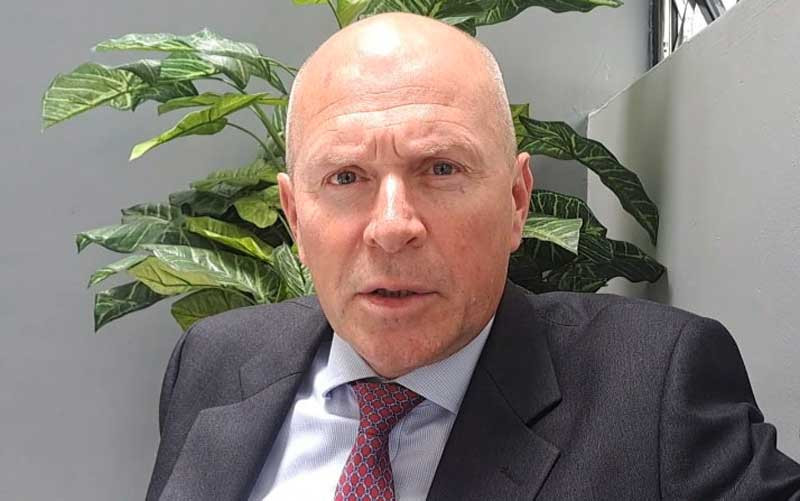
LAST month, Tongaat Hulett Limited creditors approved a business rescue plan (BRP) for the South African-headquartered firm that has a regional footprint, including in Zimbabwe. The BRP is spearheaded by the South African domiciled investment consortium, Vision Group, which will see the entity acquiring claims and security against Tongaat worth ZAR8 billion (about US$419,92 million). After this acquisition, ZAR4,1 billion (US$215,21 million) of these claims would be converted into equity. Vision representative, Rob Bessinger (RB), was in Zimbabwe last week as part of a regional tour. Our business reporter, Tafadzwa Mhlanga (TM) caught up with him to discuss Vision’s game plan. Below are excerpts of their discussion:
TM: Please take us through an overview of the business rescue plan?
RB: It has been a long journey for us. We have been looking at Tongaat since 2020. So it has been for years, and we have just come up with a business rescue plan. We had a meeting in January, which was (arranged) by the business rescue practitioners. Ninety-eight percent of the creditors approved (the BRP), which means that it has been adopted. The rescue practitioners have to implement our plan and it will take a few months as we take back the business to solvency.
We believe that this is a very good business that has a very big legacy and history. Sadly, what we have realised across the region is the decline in the cane being grown and produced. We believe we can change the trend that has been happening. We are a group of regional and local investors. We have Rute Moyo, who has a very well-established business interest in the region. We have Robert Gumede, who is a very well-known industrialist with operations across Africa. We have the Terris Fund, who is a long-term investor and has been investing across Africa’s mining and agriculture. We also have the Almoiz Group from Pakistan, who is renowned for transformation. This is the sort of background (that we have).
TM: How did the company end up with a business rescue plan?
RB: The plan is to make sure that it is aligned with the region. It is also vital to align with the regulators and the ministries, and I must say we have had a very good meeting with the Head of State, the President (Zimbabwe President Emmerson Mnangagwa), and some of his cabinet ministers.
We are working on the alignment. We all know that there are always challenges to get things done but we have alignment. We have had meetings in Mozambique, before this (visiting Zimbabwe), and we will be doing the same in South Africa.
The alignment with regulators is very good for business, especially with the regulation frameworks that exist. We want to make sure that we can get the mills to operate more efficiently and once we do, we want to make sure that we make more yield.
- Southern Africa’s smallholder farmers vulnerable
- Tongaat Hulett in talks with 8 potential investors: Hippo Valley
- Tongaat consortium mulls massive power project
- Interview: Bigger plans ahead for Tongaat
Keep Reading
We want to see the business grow. If we can get more cane, we want to make sure the livelihoods that depend on Tongaat across the region are well taken care of. In Zimbabwe, there are about 15 000 employees, who could be impacted by the operation of Tongaat.
TM: What will be the impact of the BRP on the local business?
RB: The impact is that the group could be broken up. We have been insistent that the group must not be broken up. But I think you have to look at it as an infrastructure group that sits across the southern region. I think having to resolve the issues that have started in the southern region is very vital, which will bring stability across all the Tongaat groups.
The debt occurrence in South Africa came from building the Zimbabwean and Mozambican businesses. I think keeping it together is very vital and we are very excited.
TM: What should the markets expect during the rescue plan?
RB: As the plan is being implemented, we will be taking full control of the business. We have a four to five-year plan that is going to work on stability. Firstly, it will stabilise and maintain everything, making sure that we create jobs and that the growth is built around diversification, improving the mills, the fields, and getting involved with the growing community.
One of the strengths is that we are working with the Almoiz Group. They have a multitude of small-scale growers in Pakistan. We think that involvement with such growers is vital. Once we get this stability to grow, have enough yield, we will inject millions of rands into the business.
TM: Would you say duty exemptions on products like sugar had an effect on HVEL?
RB: It does affect us. We are the second biggest employer in the country after government. Low sugar prices affected the livelihood of the Tongaat infrastructure. Cheap imports put pressure on Tongaat’s operations. We were very happy when we had the meeting with the President (when we were informed) that the duty exemption had been paused.
TM: How will Tongaat capitalise on this?
RB: I think what is important is for us to focus on what we set out to do. We need to improve yields, and focus on reducing the cost of doing business. We do believe that we can grow this business beyond the domestic supply and make sure that we work hard to bring foreign currency into the country.
TM: Tell us about Tongaat’s debt restructuring efforts?
RB: As part of our plan, we have acquired all the debt, and we will be converting a substantial amount of that to equity. We will make sure we right-size the balance sheet to an optimal capital structure for the group. But, various external factors come in and it puts a lot of challenges in the plan. We are quite confident and excited.
TM: What is the outlook for 2024?
RB: We would like to grow this business so that it creates adequate jobs, increases our supply domestically and internationally. South Africa has a deficit of sugar, and I think the solution should come within Africa. For Zimbabwe, if this business grows, jobs will be created, and foreign currency will start to flow in. We are also looking at diversifying and going into power generation, and as we all know, power generation is key as we go on the journey we are going in Africa.
Another issue that is key is the issue of management. Right now, we are very impressed with it, and I think it is just a company that needs help in certain areas. We have been over to Pakistan and got into their plants. If we could get to that level of efficiency and the yield that they are getting that would be an incredible turnaround for our business. It does not happen overnight, but we have to spend time on the plan for the next two years to stabilise and restructure to better efficiencies and once we do that then we start to diversify.
TM: Tell us more about your regional tour?
RB: We have spent the last week spending time with management in the region so that we get to understand the challenges they are facing.
The key factor in this issue is the management and we believe that there are challenges we need to address before we start thinking of where we will end up in 2024. The major challenges are operational.
There is a lot of uncertainty in the business, and we probably need to get more comfortable in the business. There is a need for mindset change.











